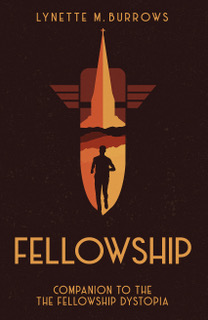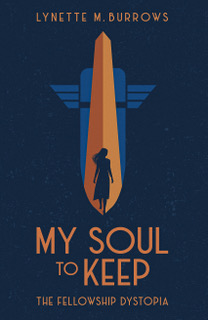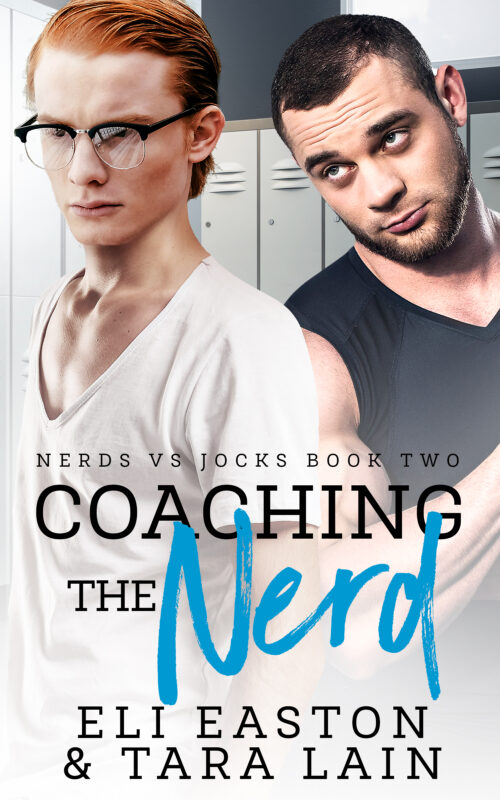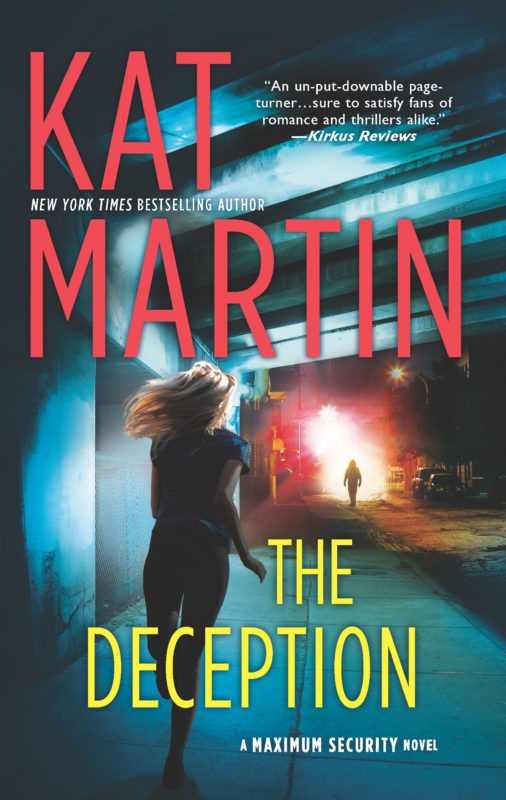Criticism: Big Girl Panties for Ruth by Jenny Jensen
May 25, 2018 by Jenny Jensen in category On writing . . . by Jenny Jensen tagged as constructive criticism, critiques, Editors, Jenny Jensen, writers
Criticism: Big Girl Panties for Ruth
Or How to Take It on the Chin and Grow
I attended an author’s chat the other day at our local library. It’s always fun to hear an author talk about their craft— especially if you like their books. The bonus is mingling with other attendees. Who among us doesn’t enjoy chatting with fellow book lovers? I found myself in conversation with two women, each funny, gracious and interesting. When talk got to the inevitable “so what do you do?” I learned Kit was a nurse and Ruth, a writer. I added that I’m an editor and while Kit smiled acknowledgment, Ruth scowled.
Ten minutes later—after Kit had smiled apologetically and bowed out—I’d learned all about Ruth’s experience with editors. “They call themselves editors, but they’re really just critics. They couldn’t even follow the story, let alone the subtext. They’re just mean, simple-minded wannabe writers” and so forth. Yowza! I’d never encountered that before. I know a lot of editors, and none of them fit that bill. Best to just nod and try to look sympathetic while keeping an eye peeled for a graceful escape. Ruth had either met the world’s worst editors, or she’s simply unable to handle criticism. I suspect the latter.
Writing is hard, solitary work. It’s just you creating in a vacuum. Writing requires hours of reading, writing and revising, searching for just the right words to make a character live and breathe, the perfect plot twist, the right feel. Writing writing writing, and then hours of revision. The whole blood, sweat and tears combo. Then there’s the criticism; every writer has to face it if they want to share their work outside that creative vacuum.
It can be a hard pill to swallow. I know. I’ve been singed by some very savvy, very critical edits. Hard to have your heart and soul — not to mention all that BS&T—picked to pieces by others. But like mammograms, taxes and dirty diapers, it has to be faced.
As an editor, I’m really loath to offer a ‘critique’. That word has such baggage. If words have color, then criticism is a red-tinged pulsating mash-up of bruised blue and black. I prefer to think of what I do as editorial assessment, or an overview. (Words really are powerful, aren’t they?!) But no matter how I spin it, it comes down to criticism.
Criticism is like cholesterol; there’s the good kind and the bad kind. The LDL kind, the bad kind, is empty criticism. “ I don’t like it”, “Flimsy and transparent” or “I don’t get it”. My favorite being, “yeah, I read it. Interesting”. Ouch! Then there is the polite, painless approach: “Very nice!” What could that possibly mean?
Constructive criticism is HDL cholesterol, good for every writer’s circulation. Good criticism points out pitfalls and weaknesses, but it also explains why they are pitfalls and weaknesses. It sheds light on why it doesn’t work. Really good, healthy criticism offers solutions. I never expect an author to accept a solution I offer (and most don’t, they find their own). I offer it as a straw man—something to consider, breakdown, reject and replace with a better approach because suggesting a substitute shows the author the problem needing a solution. It’s because a writer creates in isolation that they can’t always hear a misstep. I’m guessing Ruth’s missed subtext was so sub it wasn’t there. Point this out to a writer and the light bulb goes on; they revise, and the story is stronger.
How should you, as a writer, react to criticism? You wrote it, you shared it—you must learn to account for it. How do your words strike people? Did the reader see nothing where you intended a scene to be revealing or suggestive, and so the story is confusing? You can’t dismiss the reader as thick, dense or stupid. You have to look at your words and consider improvement because clearly, those words didn’t do the job you had intended. Whether it’s a missed plot point or character motivation that can’t be seen, maybe it isn’t on the page; it’s still in your head. Revise, rewrite. Listen to the audience your words are intended for. The best writers respect their readers. Your work will only get better.
A good editing critique helps you identify weaknesses. Don’t take it personally. Constructive criticism is useful precisely because it isn’t personal. Your BFF is unwilling to risk a response that might be hurtful, but is that what a writer needs?
Writing’s about kicking doubt in the ass and shoving him out the door. Editing’s about inviting him back in for tea and scrutiny. *
I wish Ruth had invited her editor back in.
*from @novelicious, that magical twitter feed that is double chocolate for every writer’s sweet tooth.
0 0 Read moreLearning to Love the Writing Process
June 28, 2009 by A Slice of Orange in category Archives tagged as novels, writers, writing processWriting a book is not easy. If it were, everyone would do it.
It’s not like writing a term paper. Yes, it requires hard work and research, but the thing that makes a book special is the heart and soul the author puts into it. It really is like childbirth. There’s a lot of pain and sweat and maybe some cursing, and then finally a new project is brought into the world—a unique and wonderful project that is nothing like anyone else’s. Just like a baby.
When a writer first decides to write a book, most of the time he or she is not quite sure how to go about it. The non-writing part of the population figures you just need to sit down and put in some time and poof—a book is born (See term paper reference above). Yes, writing an entire book does take time. How much time? That depends on the writer. And you can speed up your writing time by accepting and loving your Process.
What is your Process? It is how you write your book. Not how I write my book—that’s my Process. You need to figure out your own process—what works for you that gets you from Page One to The End. And the best way to do that is to write a book, all the way through.
Every writer has his or her own process. I’ve written and published twelve books over the past ten years or so, and I still call up my friend when I get stuck. And I still get stuck at the same place in every book—between chapters five and nine—where I spend a long time banging my head against the wall and wondering if I will ever finish another book in my life…EVER. And you know what my friend says? “Oh, that’s just your process.â€
For some reason, knowing that this is my process immediately makes me feel better.
“You do this with every book,†she says.
I do?
“I’ve been studying your process. I’m trying to learn from it.â€
You are? Can you clue me in?
I have learned some things about my process over the years. There’s the chapter 5-9 problem. Usually when I’m in the middle of a frustrated, Tasmanian Devil spin, the realization that I am at the end of chapter six calms me down. Okay, this is what I always do. Grit teeth and tough it out.
Then there’s the fact that I am sort of an organized pantser. I’ve been selling on synopsis for about eight or nine years now. I write a synopsis and get approval from the publisher, and then I start writing the book. I write the first couple of chapters. Go back, change them. Decide no, that’s not where the story starts. Write a different beginning. Okay, this one might work. Write some more (usually just up to chapter 4 or so—don’t want to hit the No Man’s Land of Chapters 5-9 while still wrestling with the beginning). I might even write a third incarnation of the beginning of the book. Send to writing friends for review. Get comments. Maybe I hear a speaker or read a writing book that makes me reconsider the beginning. Maybe I try storyboarding, but something still isn’t right. In the end, nine times out of ten I will end up going back to my first version of the beginning of the book. Turns out that was the right place to start after all.
Once I have accepted the beginning few chapters, and I have wrestled with my chapter 5-9 issue, I usually get to the first love scene in the middle of the book—around chapter 10 or so. Writing love scenes and sexual tension is easy for me, so once I get to that point, the rest of the book flies. I am able to surge forward at warp speed and finish the book on time.
With every book I write, the frustration is still there. The certainty that my last book may well have been my LAST book. Every beginning I chase myself in circles. Every second quarter of the book I bang my head against the wall. Then I hit the middle and suddenly the words fly almost faster than I can type them. And when it’s all over, I have a book to submit.
Then I have to do it all again for the next one.
Understanding my process definitely makes it easier to accept while I am in the midst of deadline angst. Loving my process is harder, but the two of us are joined irrevocably. We create wonderful stories together, and that makes it all worthwhile.
3 0 Read moreAffiliate Links
A Slice of Orange is an affiliate with some of the booksellers listed on this website, including Barnes & Nobel, Books A Million, iBooks, Kobo, and Smashwords. This means A Slice of Orange may earn a small advertising fee from sales made through the links used on this website. There are reminders of these affiliate links on the pages for individual books.
Search A Slice of Orange
Find a Column
Archives
Featured Books
MY SOUL TO KEEP
Miranda has three days until she must surrender control of her own life forever.
More info →
THE DECEPTION
When missing turns to murdered, one woman's search for answers will take her to a place she never wanted to go…
More info →A VERY MERRY SUPERHERO WEDDING
Wedding Dreams . . . and Christmas Fiends
More info →Newsletter
Contributing Authors
Search A Slice of Orange
Find a Column
Archives
Authors in the Bookstore
- A. E. Decker
- A. J. Scudiere
- A.J. Sidransky
- A.M. Roark
- Abby Collette
- Alanna Lucus
- Albert Marrin
- Alice Duncan
- Alina K. Field
- Alison Green Myers
- Andi Lawrencovna
- Andrew C Raiford
- Angela Pryce
- Aviva Vaughn
- Barbara Ankrum
- Bethlehem Writers Group, LLC
- Carol L. Wright
- Celeste Barclay
- Christina Alexandra
- Christopher D. Ochs
- Claire Davon
- Claire Naden
- Courtnee Turner Hoyle
- Courtney Annicchiarico
- D. Lieber
- Daniel V. Meier Jr.
- Debra Dixon
- Debra H. Goldstein
- Debra Holland
- Dee Ann Palmer
- Denise M. Colby
- Diane Benefiel
- Diane Sismour
- Dianna Sinovic
- DT Krippene
- E.B. Dawson
- Emilie Dallaire
- Emily Brightwell
- Emily PW Murphy
- Fae Rowen
- Faith L. Justice
- Frances Amati
- Geralyn Corcillo
- Glynnis Campbell
- Greg Jolley
- H. O. Charles
- Jaclyn Roché
- Jacqueline Diamond
- Janet Lynn and Will Zeilinger
- Jaya Mehta
- Jeannine Atkins
- Jeff Baird
- Jenna Barwin
- Jenne Kern
- Jennifer D. Bokal
- Jennifer Lyon
- Jerome W. McFadden
- Jill Piscitello
- Jina Bacarr
- Jo A. Hiestand
- Jodi Bogert
- Jolina Petersheim
- Jonathan Maberry
- Joy Allyson
- Judy Duarte
- Justin Murphy
- Justine Davis
- Kat Martin
- Kidd Wadsworth
- Kitty Bucholtz
- Kristy Tate
- Larry Deibert
- Larry Hamilton
- Laura Drake
- Laurie Stevens
- Leslie Knowles
- Li-Ying Lundquist
- Linda Carroll-Bradd
- Linda Lappin
- Linda McLaughlin
- Linda O. Johnston
- Lisa Preston
- Lolo Paige
- Loran Holt
- Lynette M. Burrows
- Lyssa Kay Adams
- Madeline Ash
- Margarita Engle
- Marguerite Quantaine
- Marianne H. Donley
- Mary Castillo
- Maureen Klovers
- Megan Haskell
- Melanie Waterbury
- Melisa Rivero
- Melissa Chambers
- Melodie Winawer
- Meriam Wilhelm
- Mikel J. Wilson
- Mindy Neff
- Monica McCabe
- Nancy Brashear
- Neetu Malik
- Nikki Prince
- Once Upon Anthologies
- Paula Gail Benson
- Penny Reid
- Peter J Barbour
- Priscilla Oliveras
- R. H. Kohno
- Rachel Hailey
- Ralph Hieb
- Ramcy Diek
- Ransom Stephens
- Rebecca Forster
- Renae Wrich
- Roxy Matthews
- Ryder Hunte Clancy
- Sally Paradysz
- Sheila Colón-Bagley
- Simone de Muñoz
- Sophie Barnes
- Susan Kaye Quinn
- Susan Lynn Meyer
- Susan Squires
- T. D. Fox
- Tara C. Allred
- Tara Lain
- Tari Lynn Jewett
- Terri Osburn
- Tracy Reed
- Vera Jane Cook
- Vicki Crum
- Writing Something Romantic
Affiliate Links
A Slice of Orange is an affiliate with some of the booksellers listed on this website, including Barnes & Nobel, Books A Million, iBooks, Kobo, and Smashwords. This means A Slice of Orange may earn a small advertising fee from sales made through the links used on this website. There are reminders of these affiliate links on the pages for individual books.








































